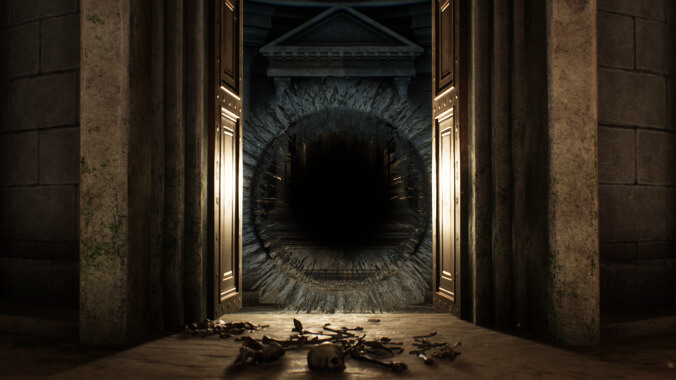Former Skyrim mod The Forgotten City demands to be remembered
Modern Storytelling's story of sin and exploration, adapted from a Skyrim mod of the same name, is one of the best games, indie or otherwise, in recent memory

Every Friday, A.V. Club staffers kick off our weekly open thread for the discussion of gaming plans and recent gaming glories, but of course, the real action is down in the comments, where we invite you to answer our eternal question: What Are You Playing This Weekend?
It’s been a quiet summer for games—at least in the sense of big-budget, big studio blockbusters. Sure, there’s technically a new Pokémon floating around out there, and the latest installment of Madden will come blitzing in next week. But for the most part, a combination of standard summer lethargy and the knock-on effects of the COVID-19 pandemic appear to have slowed the usual firehose of new Big Games down to something akin to a trickle over the last few months. Which isn’t a bad thing, to be clear—especially when it lets something small and fascinating and excellent like The Forgotten City get a little air it might not otherwise see.
Developed by small study Modern Storyteller, and building off of and refining the group’s previous Skyrim mod of the same name, the new adventure game lays out its heavily hooky premise quickly: You’ve been transported back in time to an ancient Roman city living under a bizarre curse, which kills everyone inside its city limits any time a single person living there sins. Working within the constraints of a time loop that allows you to reset every time someone (including, probably you) break this super-strict spin on ancient judicial practices, you must work out what’s going on, who is sinning, and how you might possibly get back to your own time.
What’s great about The Forgotten City, then, is that those elements of its plot and settings that might initially seem to be vague to the point of pointlessness—most notably the most obvious question, “What counts as a sin?”—are adopted by the game as the entire basis for the story it’s trying to tell. Almost all of the 20-plus people trapped in the underground citadel have a different understanding of what this “Golden Rule”—so dubbed because everyone who breaks it gets transformed, Midas style, into a golden statue—means, who it’s meant to punish, and what kind of society forms when the oppressed have no means of resisting their oppressors without bringing the whole world crumbling down on all involved. (The Golden Rule, as it turns out, is very strong on murder and theft, and pretty lax on systemic violence and economic coercion.) As a one-two punch with The Great Ace Attorney Chronicles, it’s made for one hell of a summer for games asking their players to question what “justice” actually means—no mean feat for a medium that wrestles with its political nature as uncomfortably as gaming so often does.
The Forgotten City is by no means a perfect game—as with any project from a small team attempting to harness Unreal Engine 4 for something this ambitious, the occasional glitch or long load time rears its ugly head. (Also, we’re nit-picky enough to note that, despite outside descriptions, it’s less of a detective game than a first-person spin on classic adventure games; you do less deduction than you might immediately assume.) None of which keeps its philosophical points from hitting, its historical setting from dazzling, or its story from being one of the most interesting ones we’ve played all year. (The only real competition coming from Returnal, that other time loop game still burning a hole in our brains with its complicated stances on justice and guilt.) In a busier part of the year, a game like this might have been buried beneath the rubble of history; we’re lucky to have stumbled, then, onto its narrative and philosophical gold.